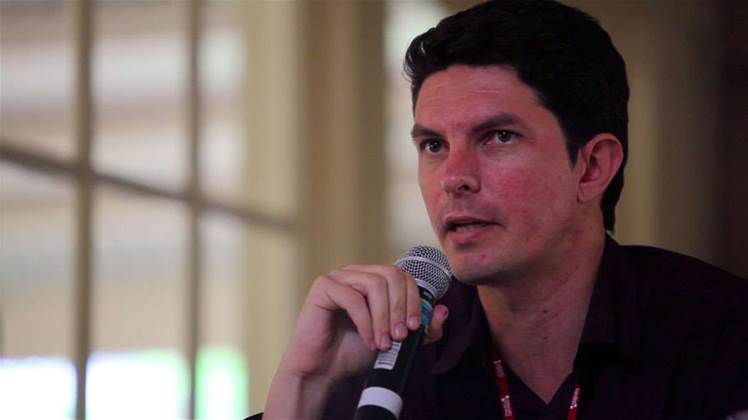Greens Senator Scott Ludlam has raised concerns that key financial data underpinning the rebooted national broadband network may be little more than "brazen guesswork" on the part of NBN Co and its advisors.

Ludlam made the charge after a damaging exchange with NBN Co executives at a hearing of the Senate Select Committee for the NBN in Sydney yesterday.
The West Australian Senator had been seeking information on what it might cost NBN Co to get access to Telstra's copper access network for the proposed fibre-to-the-node rollout, and to the hybrid fibre coaxial (HFC) networks of Telstra and Optus, which will also form part of the revised NBN structure.
NBN Co executive chairman Ziggy Switkowski confirmed that NBN Co had taken advice from copper experts — including some with previous exposure to Telstra's network — in order to come up with some numbers for the expected costs of accessing the copper and HFC networks and making them fit-for-purpose.
However, these numbers have been redacted from the public version of the strategic review that was released last week, and Switkowski indicated that NBN Co would not produce an unredacted version of the review for the committee.
"We're being asked to accept the entire basis for this project being financially and commercially viable on the basis of a couple of blacked out rectangles," Ludlam said, referring to the redactions.
He said there had been only one other instance in his five years sitting on various NBN-related committees where full financials had not been produced for the benefit of committee members.
"Apart from that, I've never seen so many blacked out rectangles on an NBN committee," he said.
"It's almost as though the whole 'operational security' matter has been brought into telecommunications policy. I know I'm being a bit tongue-in-cheek here, but it's the lynchpin of your entire project, those numbers."
Switkowski agreed that the numbers "matter".
"I can only give you assurance that they've been determined to the best of our ability with considerable debate," he added.
Quizzed on what would happen if the numbers proved wildly off-target in upcoming negotiations with Telstra, Switkowski said it was a "bridge we will cross" should such issues arise.
"Let's see how this plays out," Switkowski said.
He further declined to characterise NBN Co's negotiating position as it begins talks with Telstra. Ludlam raised concerns that NBN Co was in a far weaker negotiating position this time around, and that Telstra is likely to be in the box seat.
"I think we are likely to be paying an absolute fortune for a network that's obsolete and should be decommissioned as was the previous plan," Ludlam said at a press conference following Switkowski's interrogation.
He called on Turnbull to provide the committee with financial data that would enable NBN Co's cost inputs to be vetted, and argued that redacting those details "is hiding the fact that it's just brazen guesswork".
"There's no data underneath it," Ludlam said.
Telstra representatives that fronted the committee later in the day indicated that the carrier did not presently have a valuation for its copper access network assets that it would take into negotiations with NBN Co.
That would make the redacted figures in the NBN strategic review the only set of figures available on just how much it might cost NBN Co to get access to the copper network and maintain it on an ongoing basis.
As has previously been the case, Telstra used yesterday's Senate hearings to again talk up the value of its copper assets.
The incumbent telco defended the quality of the copper network and generally disagreed with ":anecdotal statements" of an asset that was in a state of disrepair that would require significant remediation work to make it fit-for-purpose for use in the rebooted NBN model.
"Will the taxpayer have a reasonable idea of the quality and condition of the network before we buy it off you?" Ludlam quizzed Telstra executives.
"They are matters that will be discussed within the context of the negotiation [with NBN Co]," Telstra's director of government relations, James Shaw, said.


.png&h=140&w=231&c=1&s=0)
_(28).jpg&h=140&w=231&c=1&s=0)





_(26).jpg&w=100&c=1&s=0)

 iTnews Executive Retreat - Security Leaders Edition
iTnews Executive Retreat - Security Leaders Edition












_(1).jpg&h=140&w=231&c=1&s=0)



